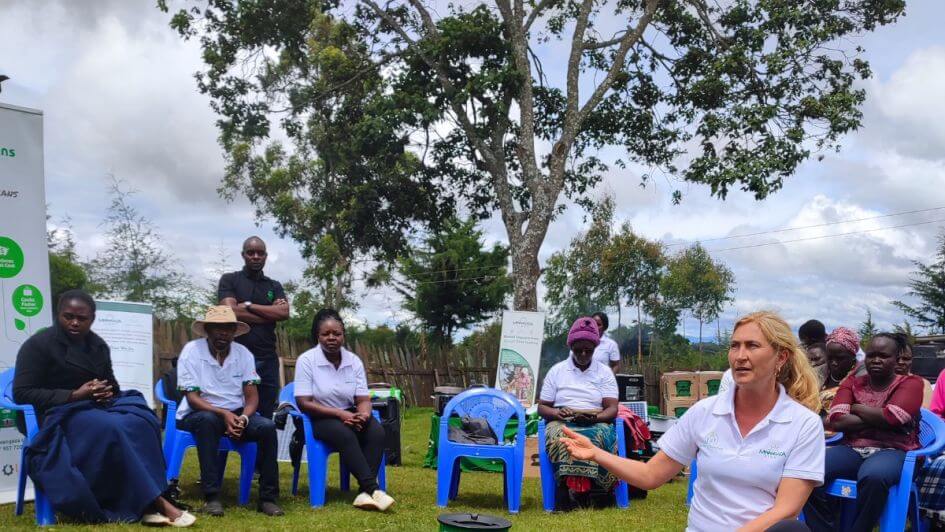In the heart of East Africa, Catrine, an anthropologist turned entrepreneur, is transforming communities through her renewable energy initiative, Mwangaza Light. This venture meets the urgent need for sustainable energy solutions and promotes gender inclusivity in a sector ripe for growth. Catrine's journey from observing the impact of energy poverty in a Ugandan village to leading a clean energy enterprise in Kenya highlights the significant potential and challenges of distributed renewable energy in driving comprehensive community development.
Mwangaza Light is dedicated to advancing solar energy and clean cooking technologies, which improve life quality while addressing environmental concerns. Her cousin's award-winning solar lantern initially inspired Catrine. Recognizing the broader benefits, she expanded her focus to include clean cooking solutions that reduce health risks associated with traditional cooking methods, combat deforestation, and free up women’s time for other activities.
However, the adoption of renewable technologies in regions with entrenched cultural traditions poses challenges. The clean cooking sector emphasizes social and environmental benefits, especially for women. Traditional practices like cooking on three-stone fireplaces, deeply ingrained as cultural symbols, necessitate a shift in cultural norms—a challenge Catrine is adeptly navigating thanks to her background in anthropology.
Women entrepreneurs and workers in the renewable energy sector often face gender biases and stereotypes that question their resilience and capability in technical and leadership roles. Despite these challenges, there is a slow but noticeable shift in increasing recognition of diverse perspectives within the sector. As a local SME, Catrine partners with churches to build credibility and outreach, a crucial strategy given the competition and initial lack of respect for local endeavors like Mwangaza Light.
Catrine Shroff with members of All Saints Cathedral, Nairobi, Kenya - © Mwangaza Light
Financial constraints further complicate the landscape. High interest rates epitomize the financial barriers enterprises like Mwangaza Light face, encapsulated in the local saying, "Slow but sure." Despite growth in annual revenue, the cost of finance remains a formidable obstacle.
Mwangaza Light's broader impact includes environmental and health benefits and the empowerment of women by creating opportunities for them to be more economically active. Women, often the primary energy managers in households, are critical to the adoption of new technologies. By addressing the needs and circumstances of rural women, Mwangaza Light not only champions sustainable energy but also supports women's empowerment. That said, it is difficult to engage women in rural areas in becoming last-mile agents because they juggle numerous responsibilities.
This dual focus is evident in Catrine's efforts to train and involve women in faith-based initiatives and government programs aimed at women's empowerment and environmental stewardship.
As renewable energy technologies evolve, the sector presents a promising platform for women to become leaders and innovators. Catrine's leadership in Mwangaza Light challenges gender norms and showcases the pivotal role that women can play in driving sustainable development and innovation.
Mwangaza Light stands as a testament to the vital role that distributed renewable energy can play in overcoming both practical and socio-cultural barriers. By concentrating on technological innovations and gender inclusivity, Catrine is not only lighting up homes and modernizing cooking techniques but also forging a more equitable and sustainable future. Her story is a powerful example of how distributed renewable energy can be a catalyst for community development and a center of opportunity for women in marginalized regions of the world.
INTERVIEW CONDUCTED ON BEHALF OF IRENA FOR DECENTRALIZED SOLAR PV: A GENDER PERSPECTIVE (2024) REPORT
Image Credit: Mwangaza Light
